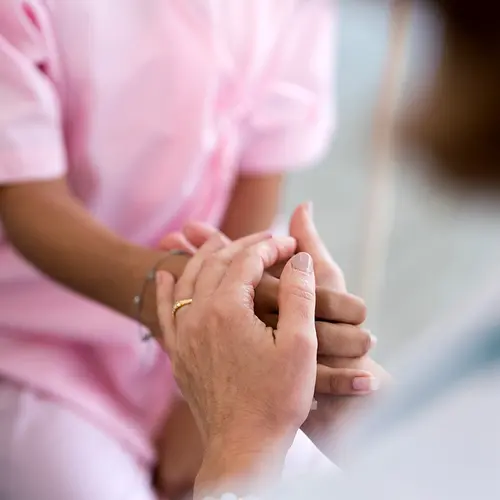Most of the more than 232,000 cases of breast cancer that will be diagnosed in the United States this year are not due to a faulty gene passed down through families. As with most other cancers, they happen because of genetic mutations that happen as we age.
But about 15% of women with breast cancer have at least one relative who has also had the disease, and 5% to 10% have specific inherited mutations in one of two genes that have been linked to breast cancer, known as BRCA1 and BRCA2.
These mutations are serious. Women with a BRCA1 or BRCA2 mutation face a dramatically increased lifetime risk of breast cancer -- 55% to 85%, compared with about 13% for women with no inherited genetic risk. Ovarian cancer risk is higher, too -- about 39% of women with BRCA1 and 11% to 17% of women with BRCA2 will get ovarian cancer. BRCA-linked breast cancers also tend to develop at a younger age than other breast cancers.
Women diagnosed with these mutations sometimes choose to have preventive surgery to remove their breasts and/or ovaries before they can get cancer.
Angelina Jolie and Christina Applegate both underwent double mastectomies after testing positive for a BRCA mutation. Jolie lost her mother to ovarian cancer, and Applegate’s mom developed both breast and ovarian cancer.
So should you get tested for a BRCA mutation? For most women, the answer is no. If you don’t have a family history of ovarian and breast cancer, it’s very unlikely that you carry a mutated BRCA gene.
But you may want to consider testing if your family tree includes these signs:
- Any "first-degree" relative (a mother or sister) diagnosed with breast cancer, especially before age 50
- Multiple breast cancers on the same side of the family, especially before age 50
- Any family history of male breast cancer
- Any family history of ovarian cancer (Since both ovarian cancer and male breast cancer are much more rare than breast cancer in women, these raise more alarm bells.)
"If you’re considering the test, it’s very important you meet with a genetic counselor first," says Ben Ho Park, MD, PhD. He's an associate professor of oncology and a breast cancer geneticist at Johns Hopkins University School of Medicine. "They can help you make decisions about testing and understand the results."
Factor Finders
Three tests can now analyze genetic factors as well as predict the chances breast cancer will come back and whether chemotherapy will help, says Park. All three tests can only be used for stage 1 or 2 breast cancer.
Oncotype DX is the oldest and most widely used. It looks at 21 genes to get a recurrence score. Higher numbers equal greater risk of cancer coming back.
Mammostrat looks at five cancer-related genes and classifies you as low, moderate, or high risk for recurrence.
MammaPrint analyzes 70 genes and classifies you simply as either low risk or high risk for recurrence.
Find more articles, browse back issues, and read the current issue of "WebMD Magazine."

